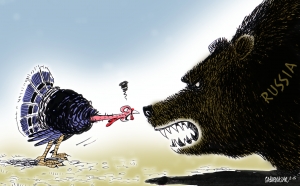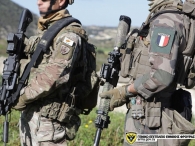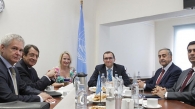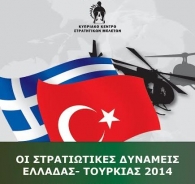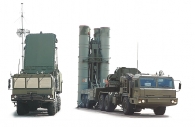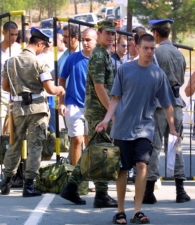CAN TURKEY AND RUSSIA REALLY BE FRIENDS?
|
Nadia Alexandrova-Arbatova Head, Department of European Studies, Institute of World Economy and International Relations (IMEMO), Russian Academy of Sciences |
No doubt, the Russia-Turkey relations are important for stability and security in Eastern Mediterranean. The downing of the Russian warplane near Syrian border last November has resulted in the deepest feud between two countries and the rupture of their economic and trade ties, including tourism. This feud created the situation of uncertainty and unpredictability fraught with a new conflict in the region already on fire of local wars. It took president Erdogan seven months to send an official apology to his Russian counterpart Vladimir Putin for the downing of a Russian jet which created the impression that the Russia and Turkey have come back to normal and reinstated their ”traditional strategic partnership”. As Huseyin Bagci, Professor at the Department of International Relations, Middle East Technical University in Ankara pointed out, ”The talks between Vladimir Putin and Recep Tayyip Erdogan in St Petersburg herald a new era in Russian-Turkish relations, as Turks now see Russia as a true friend and admire Russia’s motion to support the Turkish President in the midst of a coup”.[1] With this optimistic view it would be expedient to ask whether Russia and Turkey can really be friends.
Strategic allies or occasional partners?
Generally speaking, at different levels of the multipolar international system and in different periods of time the same countries can be both rivals and partners. From this point of view the Russia-Turkey relationships are no exception. However, whatever the numerous statements made in the past by Moscow and Ankara about their strategic partnership, Russia and Turkey have been only occasional partners. This can be explained by the fact that their neighbourhoods overlap but their strategic interests, inspired to a large extent by their imperial past, diverge.
There exist many definitions of the nature of the Russia-Turkey relations – economic and political dualism, competitive cooperation etc – but they can be also defined as the hybrid relations that include both rivalry and selective cooperation. Despite the periods of rapprochement within the last two decades the two nations dealt with profound disagreements over a range of issues, including ethno-religious problems, rivalry over transportation routes for hydrocarbon energy supplies, differing views on the regional conflicts and security arrangements. Russia’s and Turkey’s regional allies have been always irreconcilable opponents (like Armenia and Azerbaijan), which has never made life easier. And finally the past history of the Russia-Turkey relations is still casting a long shadow over the present state of affairs. The past, in particular a shared desire to right perceived historical wrongs, is making it more difficult for Turkey and Russia to smooth over their present differences.[2]
The history of the Russia/USSR-Turkey relations
The history of the Russia/USSR-Turkey relations is a history of a continued rivalry and confrontation beginning with the XVII century. Only once, in 1833, when Russia saved Kostantinopol by request of Turkish Sultan Mahmud II from the troops of the rebellious Egyptian Pasha Mehmet Ali, they became allies. In early 20's there was a short period of rapprochement between the Soviet Russia and the Kemalist Turkey based on the opposition of the both states to the dictate of the Entente. After the II World war the USSR-Turkey relations were strongly influenced by the bipolar confrontation and Turkey’s geostrategic role as NATO’s member in Eastern Mediterranean.
The 90s
Two factors - the geopolitical vacuum in the regional balance of power and the growing regional interdependence - were especially important for Ankara concerned about the loss of its strategic value for the NATO allies. Eastern Mediterranean became intertwined with the Black Sea-Trans-Caucasus and the Trans-Caucasus-Caspian regions. After the demise of the USSR Ankara became interested in finding a new mission in the post-Soviet Moslem space including parts of the Russian Federation - the North Caucasus area and Tatarstan - and undercutting Russia's regional positions in the Black Sea-Balkan rim.
The necessity to find a new mission in the post-Soviet Islamic world was enhanced also by domestic developments in Turkey - the revival of Pan-Turkism ideology and the rise of Islamic fundamentalism which was threatening the secular foundation of the Ataturk model. The faded appeal of Pan-Turkism as an ideology was revived with the collapse of the Soviet Union when the Turkic speaking space in the FSU and in Russia was included in the new Ottoman sphere of influence.[3] By contrast, Russia was concerned about the emerging dominance of Turkey over the post-Soviet Moslem space and tried to prevent this expansion by building cooperation with Armenina, Iran, Greece and Cyprus.
The euphoria period – economic and political dualism
The Munich speech of president Putin in 2007 can be viewed as a turning point in the Russia-West relations. Moscow sent a clear message to the West about its dissatisfaction with the existing world order and Russia’s place in the post-bipolar security arrangements. Russia’s dissatisfaction with the West coincided with Turkey’s disappointment with European Union and the United States. Both Russia and Turkey were demonstrating the tendency toward more unilateral conduct. Russia lost any illusions about her integration with the Western institutions - European Union and NATO portraying itself as an independent Eurasian great power, while Turkey shifted its focus away from its role as a NATO member toward that of a regional power. The two countries were positioning themselves as pragmatic international players concerned about the U.S. activism in the Black Sea region. They perceived the Black Sea as an “internal lake” and opposed efforts to make the Black Sea a NATO-controlled body of water.[4] Put simply, the growing anti-Westernism whatever its roots has become a platform for the Russia-Turkey rapprochement.
Interestingly, even the Caucasus crisis and the Ukrainian conflict did not spoil completely the relationship between the two countries although these conflicts revealed their differing goals in the region. Ankara was interested in maintaining the status quo in the region by preserving its own positions and containing the resurgent Russia, while Kremlin’s understanding of the status quo was aimed at increasing Moscow’s leading role in the region of “its privileged interests” and preventing NATO’s expansion to the region by all means. Paradoxically, these two crises have not had a major impact on the Russia-Turkey relations because of several considerations.
First, as heirs of the Ottoman Empire defeated many times by Russia that played a major role in its disintegration, Turkey and its leaders have always tried to avoid any military confrontation with Russia. Aside from this the negative trends in Erdogan’s domestic policy aimed at expanding repressive laws as well as his new self-assertive course in the region (including his flirtation with jihadist forces in Syria) brought about strong criticism of the West. As American analyst George Friedman has pointed out, “the idea that the AKP agenda is radically Islamist and that Turkey is moving toward radical Islamism generates anxieties and hostilities in the international system. [5] In line with the rapid Islamisation Turkish foreign policy has undergone a 180 degree turn in less than two years. Turkey has built a clear regional strategy around two conceptual novelties – “zero problems with neighbors” and “neo-Ottomanism”. These concepts have marked a radical change in Turkey’s regional policy, previously based on “harmony with the Western alliances”. With all these fears and concerns it was not in the interests of Recep Erdogan to bring additional disruptions in his relations with Russia.
Second, Turkey’s shift from the Black Sea / Balkan identity to a new mission in the Moslem world resulted in Erdogan’s tacit recognition of the post-Soviet Black Sea space as Russia’s sphere of special interests. His statements about Georgia’s and Ukraine’s territorial integrity were merely verbal and rhetorical.
Third, economic considerations have always been a key-driver of Ankara’s policy towards Russia. Russia also supplied almost half of Turkey’s crude oil and 65 percent of its natural gas, used both to heat Turkish home and to run many of the country’s power plants In 2008, Russia displaced Germany to become Turkey’s largest trading partner with an annual trade volume totaling $38 billion; both countries have expressed a desire to see that trade volume grow to $100 billion.[6] In 2009, Russian Prime Minister Vladimir Putin visited Ankara and concluded fifteen intergovernmental agreements and signed seven special protocols. During this visit, President Erdogan outlined the “strategic nature” of Russian-Turkish cooperation. In May 2010, during a visit to Turkey by Russian President Dmitri Medvedev, Ankara and Moscow agreed to allow visa-free travel for trips up to thirty days. The two leaders also reached an agreement to build the first nuclear power plant in Turkey, at an estimated value of $20 billion. Turkey imports 60% of its gas imports from Russia, and in December 2014 president Putin during his visit to Ankara underlined the importance of the energy issues in the bilateral relations. He promised president Erdogun gas discounts and announced Moscow’s plan to build a pipeline to Turkey to replace South Stream, which ran into opposition from Europe.
But the paradox of Russia-Turkey economic relations lies in the fact that while Moscow and Ankara have been engaged in an intense partnership, including in the energy sphere, they have been at the same time fiercely competing with one another in the same energy sphere. Russia’s goal has been to increase Turkey’s dependence on its natural gas supplies while preventing the construction of pipelines bypassing Russia. For its part, Ankara has been striving to diversify its energy sources and turn the country into a major transit hub, facilitating the transportation of Central Asian and Caspian hydrocarbons to Europe[7].
The moment of truth
Russia’s involvement into Syrian conflict and Turkey’s downing of the Russian jet opened a new page in the Russia-Turkey relations or better to say revealed their competing goals that like a smoldering peat went outside. President Putin wanted to upgrade his relations with the West after the Ukrainian conflict through counter-terrorism cooperation and show that it was ISIS but not Russia who presented the biggest threat to the international security. Moscow’s support of Assad was no mystery at all, since president Putin had never kept a secret of his attitude towards regime change from the outside. Turkey’s goals were to overthrow President Bashar al-Assad’s regime, sponsor the opposition, defeat Kurdish fighters of the Popular Protection Units (YPG) and possibly shell ISIS. Although the Turkish leadership tried to present the downing of the Russian jet as an unintended incident, it looks that Recep Erdogun did what he intended to do. He was dissatisfied with Kremlin who violated the gentleman agreement and entered Turkey’s near abroad and Turkey’s sphere of privileged interests. He wanted also to send a signal of Ankara’s displeasure with Russian air attacks that targeted Turkoman militia members operating in Syria and Turkic compatriots.
No doubt, Recep Erdogan did not want a real conflict with Russia, he wanted only to send a message to his counterpart. But being a politician of the Oriental type he overestimated the importance of two factors –personal relations with president Putin and bilateral economic ties. And he made a mistake. Although Putin and Erdogan had great chemistry, the incident with the Russian jet broke to pieces their friendship. As for economic factor, president Erdogun cannot imagine even in his nightmare that there is no such economic and financial sacrifices that Russia will be unwilling to pay for the sake of their political interests and prestige.
The growing divide between Russia and Turkey within the last seven months which took the form of a cold war, let alone economic losses for Turkey, made president Recep Tayyip Erdogan recognize that he could no longer afford a feud with Moscow. Therefore he began to make overtures to the Kremlin. The failed coup appears to have expedited matters: Recep Erdogan met with Vladimir Putin to agree to normalise relations between the two countries. As the British Telegraph has pointed out, “Mr Erdogan seems to be cooling towards Europe, none of whose leaders have been to Ankara since the failed coup, and is seeking alliances elsewhere. The implications of an improving relationship between Russia and Turkey are significant both for policy on Syria and for NATO itself. The US nuclear base at Incirlik is a key part of western defences; were Turkey to leave the organisation its loss would be a serious blow.”[8]
These fears are premature. Erdogan is trying to act on all playing fields and he is tactically winning so far. Turkey’s unprecedented military incursion into Syria under the pretext of counter-terrorism fight is aimed at curtailing the territorial ambitions of Kurdish combatants, some of which happen to be US proxies in the war against ISIS and who are regarded by Russia as a serious security threat as ISIS. Neither Russia, nor the United States criticized Ankara for the violation of Syria’s sovereignty or military campaign against Kurds out of fear to lose Turkey.
However the Russia-Turkey reinstated friendship rests on a shaky foundation. Politicians in both countries still regard themselves as being not just politically but also morally responsible for what is transpiring in former imperial borderlands. The task of reintegrating their immediate neighborhoods remains high on the two countries’ agenda.[9] Put simply anti-Westernism is too fragile a basis for real strategic partnership. Not to mention the fact that it will be counterproductive for security and stability in Eastern Mediterranean involving the Russia-West confrontation into the troubled region.
(*Reproduced from In Depth, CCEIA, Nicosia, Vol. 12, Issue 5, Oct. 2016)
06.10.2016
[1] Huseyin Bagci, A New Page in Russian-Turkish Relations? At http://eng.globalaffairs.ru/book/A-New-Page-in-Russian-Turkish-Relations-18312
[2] Igor Torbakov, The Russia-Turkey Spat: The Big Picture, 15 December 2016. At
http://www.eurasianet.org/node/76566
[3] See: Anthony Hyman, "The Legacy of Enver Pasha: Pan-Turkism Today", Dialogue, September, 1996
[4] Igor Torbakov, The Georgia Crisis and Russia-Turkey Relations at
http://www.jamestown.org/uploads/media/GeorgiaCrisisTorbakov.pdf
[5] George Friedman, Turkey's Realignment and What it Means for the World, STRATFOR (Strategic Forecasting Inc.), 14 June 2011, The Cutting Edge News, Archive for June 2011, www.thecuttingedgenews.com.
[6] Turkey and Russia: An Evolving Relationship. http://carnegie-mec.org/publications/?fa=45383
[7] Igor Torbakov, The Georgia Crisis and Russia-Turkey Relations at
http://www.jamestown.org/uploads/media/GeorgiaCrisisTorbakov.pdf
[8] Russia and Turkey's new friendship is bad news for the West, 10 August 2016. At http://www.telegraph.co.uk/news/2016/08/10/russia-and-turkeys-new-friendship-is-bad-news-for-the-west/.
[9] Igor Torbakov, The Russia-Turkey Spat: The Big Picture, 15 December 2016.
At http://www.eurasianet.org/node/76566

